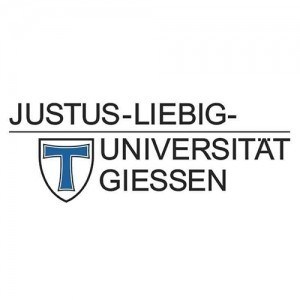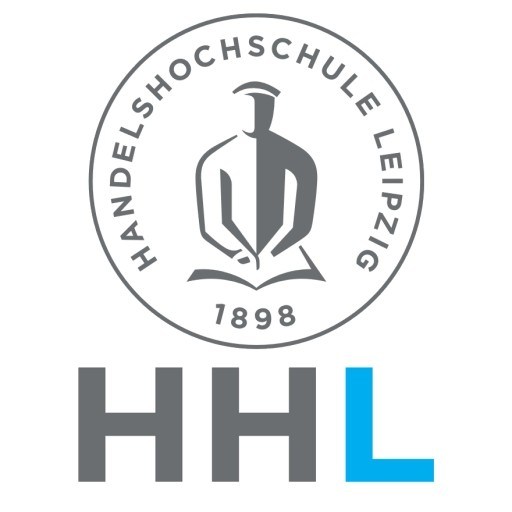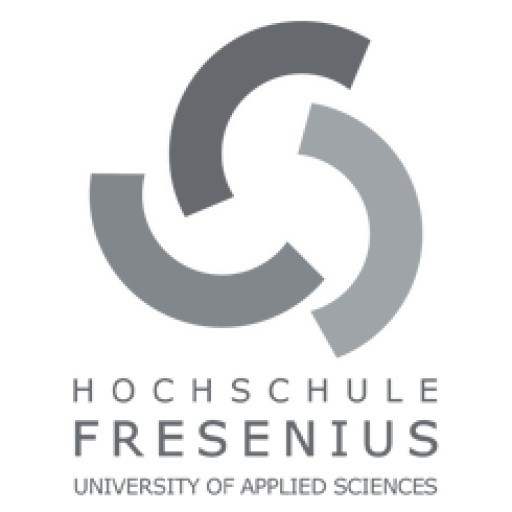Photos of university / #jlu.giessen
Program title: Transition Management
Degree: Master of Science (M.Sc.)
Duration: 4 semesters (2 years)
Language of instruction: English
Campus: Giessen, Germany
Program description:
The Master’s program in Transition Management at Justus Liebig University Giessen is designed to prepare students to address complex societal, economic, and environmental challenges associated with transitions towards sustainable development. This interdisciplinary program combines theoretical knowledge with practical skills, emphasizing systemic thinking, strategic planning, and participatory approaches. Throughout the course of study, students will explore concepts related to change management, policy development, stakeholder engagement, and innovation processes within various sectors, including energy, transportation, and urban development.
The program aims to equip students with the competencies needed to facilitate, manage, and lead transformational processes at local, national, and international levels. Students will gain insights into the socio-economic and ecological dimensions of transitions, learning to analyze and develop holistic solutions that promote social justice, environmental sustainability, and economic resilience. The curriculum integrates coursework in governance, economics, sociology, and environmental sciences, fostering a comprehensive understanding of the multifaceted nature of societal change.
Practical components include project work, case studies, and internships, allowing students to apply their knowledge in real-world contexts. The program encourages international perspectives and collaboration, preparing graduates for careers in policy advisory, consultancy, non-governmental organizations, and public administration. Graduates will be able to design, implement, and evaluate transition processes that are inclusive, participatory, and effective.
Career prospects:
Graduates of the Transition Management program are well-positioned for roles in government agencies, international organizations, research institutions, and the private sector. They will be equipped to contribute to sustainable development projects, policy formulation, and strategic planning aimed at managing societal transformations. The program also provides a solid foundation for those interested in pursuing doctoral studies or engaging in research activities related to social change and sustainability.
Admissions requirements:
Applicants should hold a bachelor’s degree or an equivalent qualification in social sciences, environmental sciences, economics, or related fields. Proficiency in English (e.g., IELTS, TOEFL) is required. Additional selection criteria may include motivation, relevant experience, and academic performance.
Accreditations:
The program is accredited by relevant national and international accreditation bodies, ensuring high standards of education and quality assurance.
For more detailed information about the curriculum, admission process, and application procedures, please visit the official Justus Liebig University Giessen website.
Transition Management at Justus Liebig University Giessen is a innovative interdisciplinary master's program designed to equip students with the skills and knowledge necessary to effectively manage and facilitate sustainable societal transformations. In an era marked by rapid environmental, economic, and social changes, the ability to guide complex transition processes has become increasingly vital for policymakers, business leaders, and civil society actors. This program combines insights from environmental sciences, social sciences, economics, political science, and management to provide a comprehensive understanding of how to design, implement, and evaluate transitions towards sustainability.
Students enrolled in the Transition Management program will explore theoretical foundations as well as practical approaches to managing change in various sectors such as energy, agriculture, urban development, and transportation. The curriculum emphasizes participatory methods, strategic planning, stakeholder engagement, and innovative governance frameworks. Throughout their studies, students will analyze case studies of successful and failed transitions, allowing them to develop critical thinking skills and practical competencies for real-world applications.
The program includes coursework in areas such as sustainability science, systems thinking, scenario planning, policy analysis, and change management. Additionally, students will undertake supervised project work, providing opportunities to apply their knowledge in practical settings, often in collaboration with local communities, governmental agencies, or private organizations. Internationally oriented and interdisciplinary, the program encourages students to adopt a holistic perspective and develop flexible strategies tailored to complex societal challenges.
A key feature of the program is its focus on transition governance, which involves coordinating multiple stakeholders with diverse perspectives and interests. Students will learn about frameworks for fostering innovation, resilience, and social equity during transition processes. The program also emphasizes communication skills, negotiation, and conflict resolution, preparing graduates for leadership roles in public administration, consultancy, NGOs, and private enterprises.
Graduates of the Transition Management master's program will be well-positioned to contribute meaningfully to the development of sustainable policies and practices. They will acquire the ability to analyze transition challenges critically, design sustainable solutions, and facilitate participation among diverse groups. The program aims to foster proactive change agents capable of steering society towards a sustainable future by integrating scientific knowledge with practical management skills. Whether pursuing careers in policy development, project management, research, or consultancy, students will leave the program with a strong foundation for advancing sustainability transitions at local, national, and global levels.
Program requirements for the Master of Science in Transition Management at Justus Liebig University Giessen typically include a relevant undergraduate degree such as Bachelor’s in Environmental Management, Economics, Political Science, or related fields. Applicants must demonstrate proficiency in English, usually through standardized tests like TOEFL or IELTS, unless previous education was in English. A motivation letter outlining the applicant's interest in transition management and career goals is often required, alongside a detailed Curriculum Vitae (CV). Academic transcripts and degree certificates must be submitted to verify previous qualifications. Some programs may request letters of recommendation from academic or professional references to assess the applicant's suitability for the program. Work experience in related fields, such as sustainable development or organizational change, can be considered an advantage but is not always mandatory. Applicants may need to undergo an interview process, either in person or online, as part of the admissions procedure. The program emphasizes interdisciplinary skills, so familiarity with concepts in sustainability, systemic thinking, and policy analysis is beneficial. Specific prerequisites, such as courses or modules in project management or environmental sciences, are not explicitly mandated but can strengthen an application. International students should verify visa requirements and may need to provide proof of sufficient financial resources to cover tuition and living expenses during their studies. As the program is designed to foster practical skills, applicants with relevant internships or volunteer experience in transition initiatives may have an increased chance of admission. All application materials should be submitted via the university's online portal before the deadline, which is typically several months prior to the start of the academic year.
Financing studies for the Transition Management program at Justus Liebig University Giessen are primarily supported through a combination of government funding, university scholarships, and potentially external financial aid options. Students may have access to federal and state student loans, grants, and scholarships designed to aid international and domestic students in covering tuition fees and living expenses. The university also offers various financial aid programs, including merit-based scholarships for outstanding applicants, which can significantly offset the costs associated with the program. Additionally, students are encouraged to explore external funding opportunities such as Erasmus+ mobility grants for international exchange participants, as well as private foundations and organizations that support studies in sustainability and transition management topics. Part-time employment opportunities may also be available on or near campus to help students finance their studies. International students should seek guidance from the university's financial aid office and international student services to identify specific funding options applicable to their circumstances. The program's fee structure is typically detailed on the university's official website, and prospective students should review the latest information on tuition fees, associated costs, and available financial support measures. Furthermore, students are advised to plan their finances carefully, considering additional expenses such as accommodation, health insurance, books, and daily living costs. The university provides counselling and comprehensive information to assist students in identifying the best financial strategies for successfully completing their studies in Transition Management.
Transition Management at Justus Liebig University Giessen is an interdisciplinary master's program designed to equip students with the knowledge and skills necessary to manage complex societal transformations towards sustainability. The program focuses on the transition processes in areas such as energy, mobility, urban development, and social change, emphasizing the importance of integrating ecological, economic, and social perspectives. It aims to prepare students for roles in policy advising, consulting, research, and project management within the field of sustainable transitions.
The curriculum combines theoretical foundations with practical applications, including modules on transition theories, governance, innovation management, stakeholder involvement, and environmental policy. Students engage with case studies from different sectors and countries, fostering an understanding of diverse transition pathways. The program encourages an interdisciplinary approach, drawing from fields such as environmental science, sociology, economics, political science, and planning.
Students have opportunities for international exchanges and internships, enabling them to apply their knowledge in real-world contexts and gain practical experience. The program emphasizes critical thinking, problem-solving, and communicative skills, preparing graduates to effectively facilitate change processes. Graduates will be equipped to work in dynamic environments, addressing global challenges related to climate change, resource scarcity, and social inequalities.
The program is typically completed within four semesters, leading to a Master of Science (MSc) degree. Admission requirements usually include a relevant bachelor's degree and proficiency in English. The university provides a supportive learning environment with modern facilities, small class sizes, and close interactions with faculty members. Overall, Transition Management at Giessen offers a comprehensive education designed to foster innovative solutions for sustainable development in an interconnected world.









